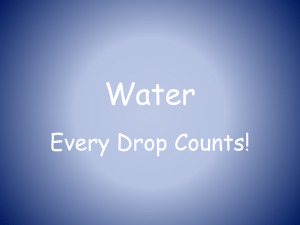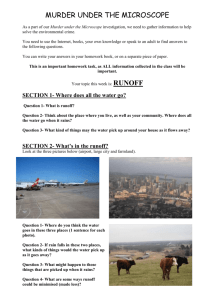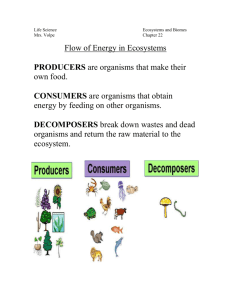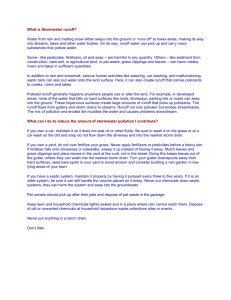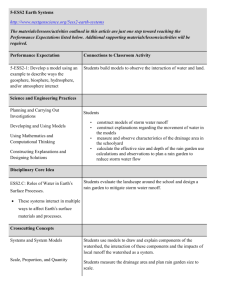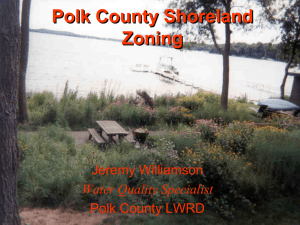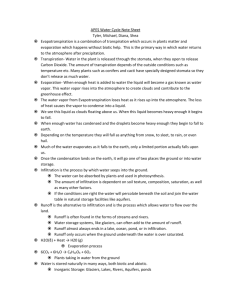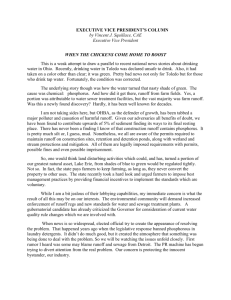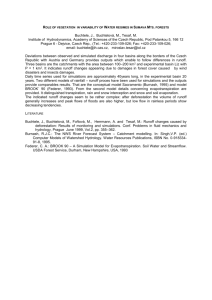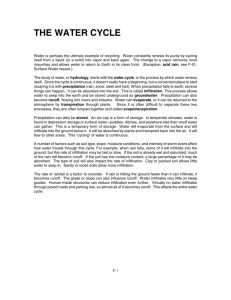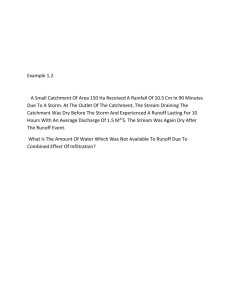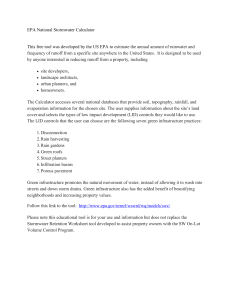Water Cycle Worksheet: Earth Science - Chapter 13
advertisement
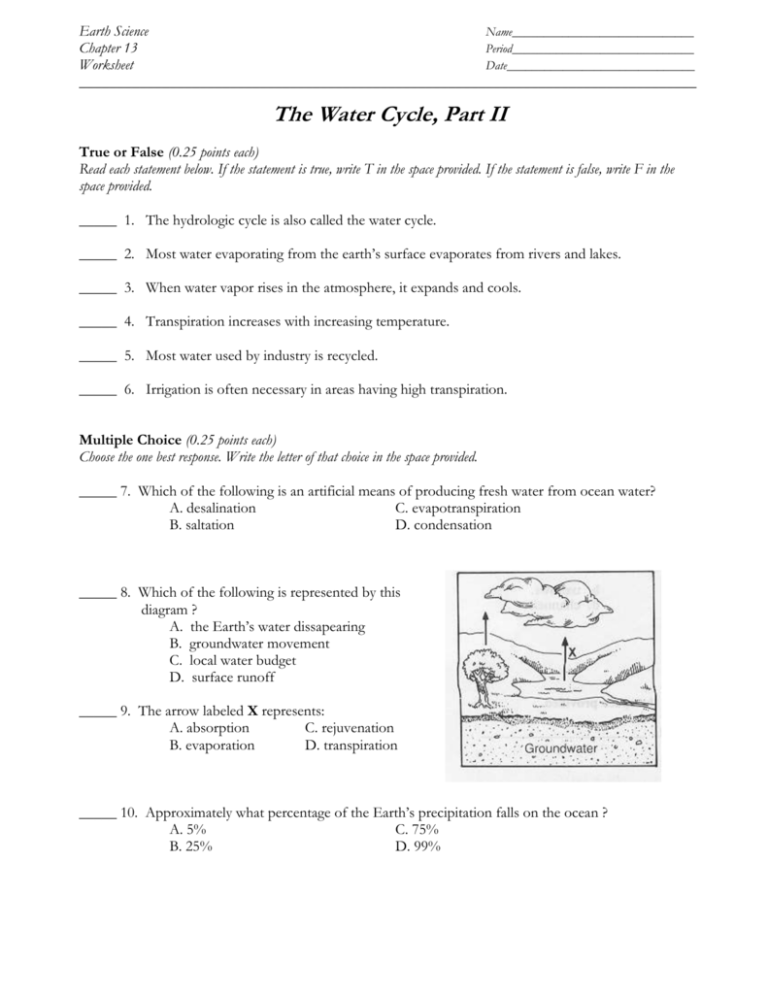
Earth Science Name_____________________________ Chapter 13 Period_____________________________ Worksheet Date______________________________ __________________________________________________________________________________ The Water Cycle, Part II True or False (0.25 points each) Read each statement below. If the statement is true, write T in the space provided. If the statement is false, write F in the space provided. _____ 1. The hydrologic cycle is also called the water cycle. _____ 2. Most water evaporating from the earth’s surface evaporates from rivers and lakes. _____ 3. When water vapor rises in the atmosphere, it expands and cools. _____ 4. Transpiration increases with increasing temperature. _____ 5. Most water used by industry is recycled. _____ 6. Irrigation is often necessary in areas having high transpiration. Multiple Choice (0.25 points each) Choose the one best response. Write the letter of that choice in the space provided. _____ 7. Which of the following is an artificial means of producing fresh water from ocean water? A. desalination C. evapotranspiration B. saltation D. condensation _____ 8. Which of the following is represented by this diagram ? A. the Earth’s water dissapearing B. groundwater movement C. local water budget D. surface runoff _____ 9. The arrow labeled X represents: A. absorption C. rejuvenation B. evaporation D. transpiration _____ 10. Approximately what percentage of the Earth’s precipitation falls on the ocean ? A. 5% C. 75% B. 25% D. 99% The Water Cycle (0.25 points each) 1. What term refers to the stages that water goes through as it moves between the atmosphere and Earth? 2. What provides the energy that causes water to evaporate? 3. What is precipitation? Give examples. 4. What 3 things may water do after it falls to Earth? 5. What is the term for water that does not soak into the ground and does not evaporate? 6. Describe how the slope of the land affects the amount of runoff after a rain. 7. Why is there more runoff after a heavy rain that after a light rain? 8. How do grass and other plants affect runoff? 9. What happens to runoff water? 10. Draw and label diagram of the water cycle. Below the diagram, describe each stage in the cycle.
